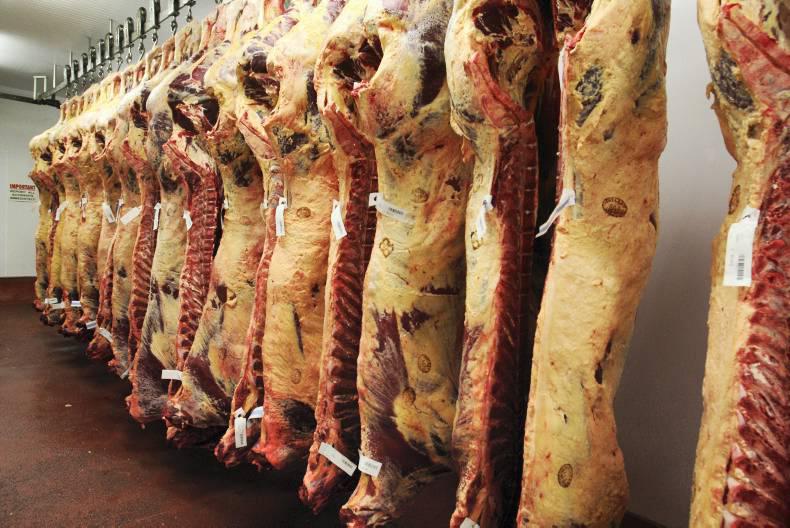One of the main arguments levelled against the meat industry here in Ireland is the opaqueness of the sector, particularly the lack of transparency in terms of the of the profitability of the factories.
Stakeholders in the meat processing sector say the industry is a high turnover, low margin business that can often be unprofitable. And while none of the Irish processors publish accounts that might shed some light on this claim, it is a worthwhile exercise looking closely at the performance of one of the UK’s largest meat processors which does publish figures.
Hilton Food Group, the specialist meat packing business headquartered in Cambridgeshire, is listed on the London stock exchange and has significant operations in the UK, Ireland, Sweden, Denmark, the Netherlands, central Europe and Australia.
Negative impact
For 2015, Hilton reported sales close to £1.1bn (€1.4bn), a marginal (-0.4%) decline compared to 2014. Currency headwinds negatively impacted turnover by 7.4% with the pound sterling hardening over the year and almost two thirds of sales coming from markets outside the UK.
Despite the currency headwinds and weak consumer confidence in Europe, Hilton grew sales volumes by more than 5% last year to over 244,000 tonnes.
The increased sales volumes helped Hilton improve its profitability last year with operating profits increasing more than 11% to £29m (€36m). On a constant currency basis, operating profits increased more than 20% last year.
This leaves Hilton with an operating margin of just 2.65% - by no means razor thin but very modest all the same. Just like many of the Irish meat processors, the Hilton group is highly tied to a number of key retail partners including Tesco and the Dutch retailer Albert Heijn.
In fact, four retail partners (Tesco, Albert Heijn, Coop Denmark and ICA Gruppen) accounted for more than 98% of Hilton’s sales last year - a narrow customer base that is a major risk for the business.
Linked performance
Tesco alone accounts for just under 50% of total sales leaving Hilton inextricably tied to the performance of the British retail giant.
Despite the obvious risks being tied to such a small customer base, Hilton has developed a strong business model with these retail partners delivering large volumes of processed and packaged meat at competitive prices.
As such, the group is constantly investing in its business to remain competitive at all times and has spent more than £210m on capital infrastructure over the last decade. Despite the significant levels of capital investment, Hilton ended 2015 debt free and actually finished the year with a net cash position of almost £13m (€16m).
As chief executive Robert Watson OBE notes, the Hilton business model has proved to be “successful, resilient, relevant and internationally transferrable.” With an ungeared healthy balance sheet, the group is perfectly poised for future expansion.






 This is a subscriber-only article
This is a subscriber-only article










SHARING OPTIONS: